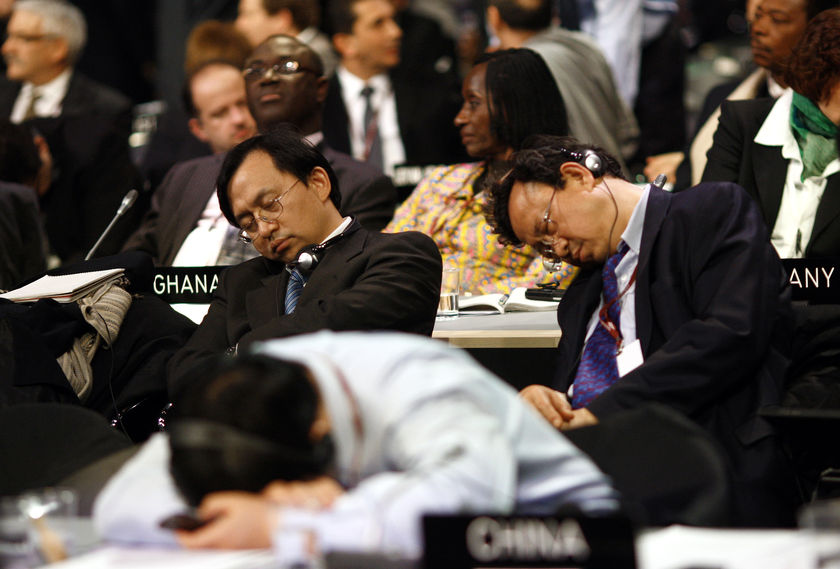As we began to digest what came out of Copenhagen, many felt disappointed that a legally binding agreement was not reached and started to look forward to COP16 in Cancun. However, up to this point there are not very high expectations for this round of negotiation which is happening in 6 months.
About a month ago, negotiators from countries that convened in Copenhagen last December met again in Bonn, Germany, to discuss how to connect the outcome of Copenhagen to the negotiation in Cancun. The frustratingly long procedure that we saw at the Bella Center in Copenhagen seemed to repeat itself here. Many countries are still in the mindset that they would be at an economic disadvantage if they spend a little bit more than other countries on climate change mitigation.
The difference between developed and developing countries is still there. Developing countries want to take into account historical responsibility while developed countries want to change the base year to a more reason year to cut even less GHG emission (such as the US, followed by Canada). Developed countries want an across-the-board policy while developing countries focus on cutting carbon intensity but not absolute amount to allow for their economic development (such as China).
According to the International Institute for Sustainable Development (IISD), there were so much frustration that the number of informal meetings happening outside of Bonn processes increased. Norway and France, in one of those meetings, launched an interim REDD+ partnership in an attempt to expedite the progress on key issues outside of the UNFCCC process. The formal UNFCCC meeting itself, ironically, was more focused on the procedures for wording of the text for the agreement as well as discussion on how many more meetings would be needed before Cancun. Yvo de Boer (video of de Boer on the upcoming negation below), Executive Secretary of the UNFCCC, was pessimistic, “I don’t think Cancun will provide the final outcome. I think Cancun can agree on an operational architecture but turning that into a treaty, if that is the decision, will take more time beyond Mexico. Matthew McDermott, a climate negotiation commentary, of Treehugger even suggested skipping COP16 to focus on the negotiation round in South Africa in 2011.
Following the climate change negotiation for me has been very frustrating. It has made me question everything from the efficiency of international negotiation, the advantages and disadvantages of democracy and the role of science in the society. Politics clearly is many years, even decades, behind science. On a more encouraging note, many countries, including the REDD+ partnership mentioned above, are ahead of the pact in climate change mitigation. Businesses in general are also moving more to cutting emissions levels. Politics still slacks behind.
Tags: Bonn, COP16, Luan Nguyen, Preliminary negotiations, REDD
